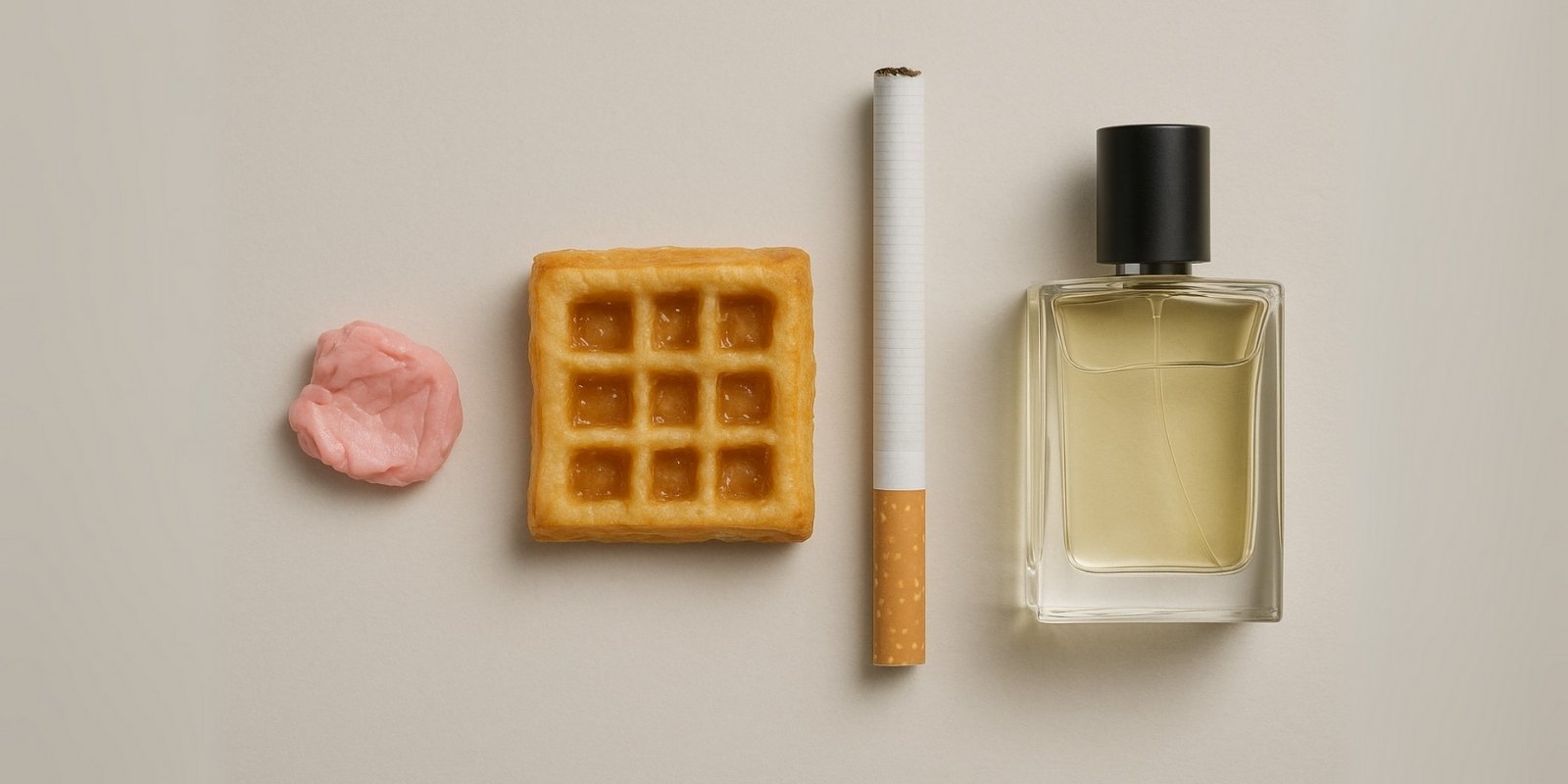Why do we wear perfumes? Conventional wisdom would tell you it’s to ‘smell good’. But smelling good is quite a subjective thing. But there are still certain perfume notes that tend to be perceived as a good smell by the vast majority of consumers– vanilla, rose, jasmine, bergamot, and so on. The unique and artistic arrangement of these notes gives perfumes their own smell. But for some enthusiasts, the diversity born out of artistic combinations is not enough.
Enter the truly strange notes.
So far, I have seen mountain air, money, sea water, crustaceans, solar notes, dust, gold, gunpowder– I’ll keep going on if you let me. Some sound reasonable enough. Take mountain air, solar notes, and sea water. One could imagine that mountain air creates a cool, refreshing feeling like the smell of snow on a wintry day. Solar notes create a sense of warmth, brightness, and lightness. Others shock, like concrete, whetstone, blood, crustaceans, etc.
Many have an emotional connection to the perfumes they wear– a rose perfume that reminds them of their mom’s garden, a fruity scent that transports them to a sweet time in their childhood. It’s not hard to imagine that people might have fond memories attached to smells not conventionally used in perfumes. Surely, someone somewhere longs to return to their beachside vacation when they had the most delicious lobster at a crab shack– they would love the crustacean note. If you grew up playing near construction sites, picking up concrete dust as you ran around and touched surfaces, you’d be delighted to know that concrete is now a note found in a few perfumes.
Perfumery is both an art and a science. Painters add colours to their palette and bring them together at just the right ratio before their brush touches the canvas. One can imagine perfumers making creative decisions on the ingredients, where they come from, how they are extracted, before blending them together to suit their creative vision of the perfume. Paintings aren’t all made to be commercially successful, but to just…be. Seen through this lens, it’s easier to understand the existence of strange perfume notes.
Perfumers are able to broaden their artistic horizons largely owing to a niche set of customers who are ready to appreciate it. Toskovat’ Inexcusable Evil tells a story of destruction and the pain of loss through notes of blood, iodine, concrete, and an arrangement of gunpowder, incense and floral notes that create a feeling of burning flowers. It creates unease, reminds one of demolished buildings and bloodshed, and the iodine smell characteristic of hospitals. It’s as much an anti war work of art as we accept Banksies (eg: Happy Choppers, 2003) to be.
The perfume market is huge and it’s daunting to exist among giants like Dior and Chanel who have endless resources to create and advertise their perfumes. What niche perfume brands have that big brands don’t is the freedom to be weird. They don’t have to please a large consumer base. The ‘weird’ label might help a brand get attention.
Such perfumes aren’t going to take over the market anytime soon– the artists don’t intend for these fragrances to be popular. It’s strange and unsettling on purpose and what fans of the perfumes like about it. Such perfumes aren’t meant to be worn everyday, won’t become anyone’s signature scent, but are works of art that tell a story and evoke strong emotions.
Niche note perfumes can fall on the more expensive side due to their small production scale and rare ingredients. The move to having a collection of perfumes rather than one or two bottles allows for consumers to add strange, not so wearable ones to their vanity. There isn’t any pressure to smell like fish or motor oil on the regular just because you splurged on it. Niche perfume buyers often have regular perfumes they wear on a day to day basis, choosing the niche perfumes only for special or appropriate occasions.
This gives way for a return of a section of perfumery to the luxury, bourgeois status it held before technology and early 20th century capitalism increased the number of perfume launches and reduced product lifecycles in the market. Purchasing niche artisan perfumes becomes a status symbol for a small class of people who can appreciate and afford to buy a perfume that tells a story and may not be pleasant to wear.
Uniqueness is the way of the attention economy not just for businesses looking to grab the market’s attention but for individuals creating a personal branding. You can smell a popular perfume on anyone and a lot of people these days don’t want to smell like just anyone. Stand out, or blend in and be forgotten. When everyone else smells like flowers, fruits, fragrant woods, etc., smelling like pizza can help create an impression– whether positive or not depends on the occasion and the people.
At the end of the day, it all boils down to personal taste. This is not to say time will popularize gasoline or cocaine notes, but time has made way for their existence in the industry. The creator of the famous Chanel No.5, upon its release, is thought to have said that a woman should smell like a woman, not a rose.
Opinions change, tastes evolve with it, and what was once weird becomes normal. I, for one, am excited to see which weird notes will become popular.










